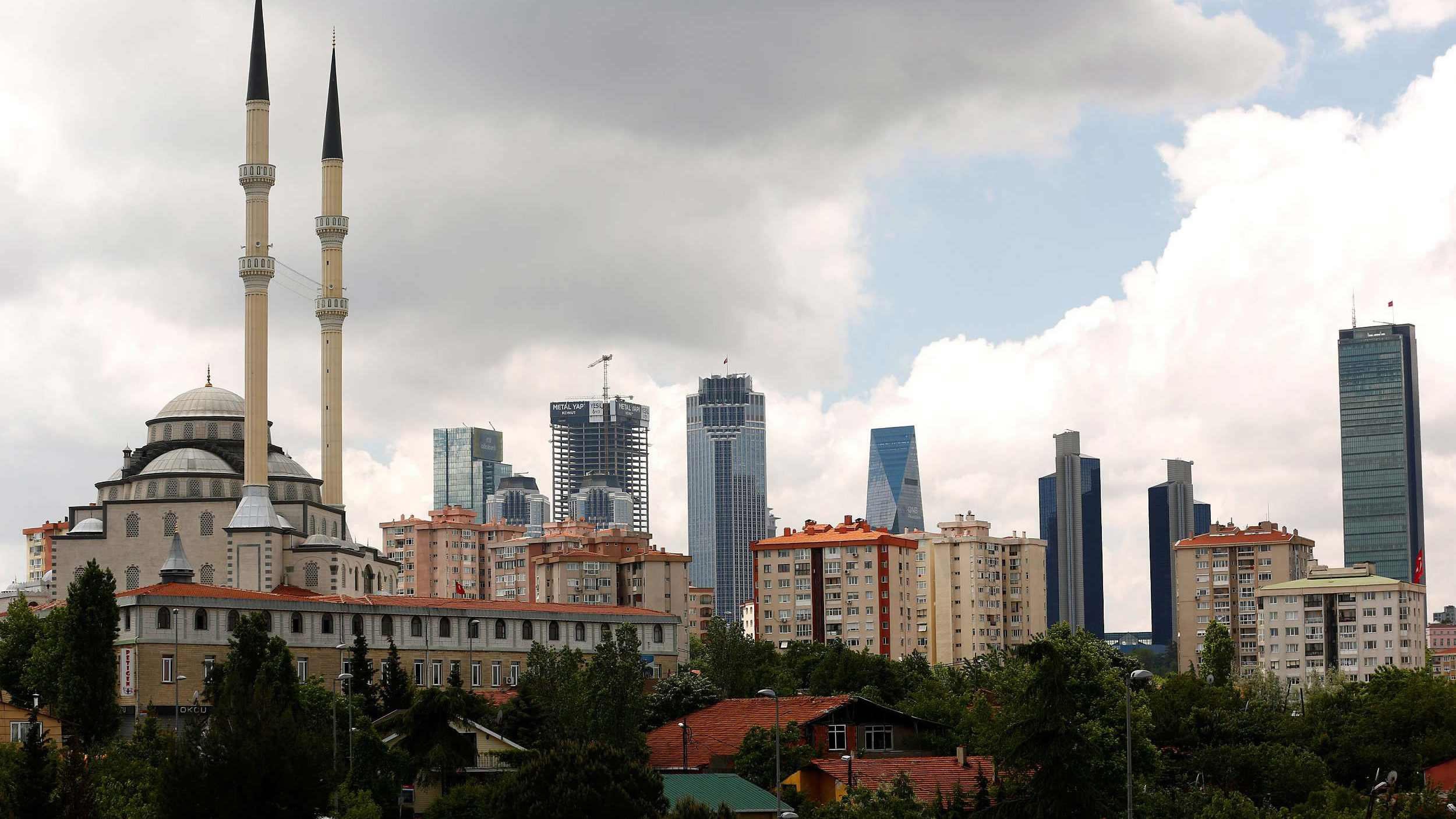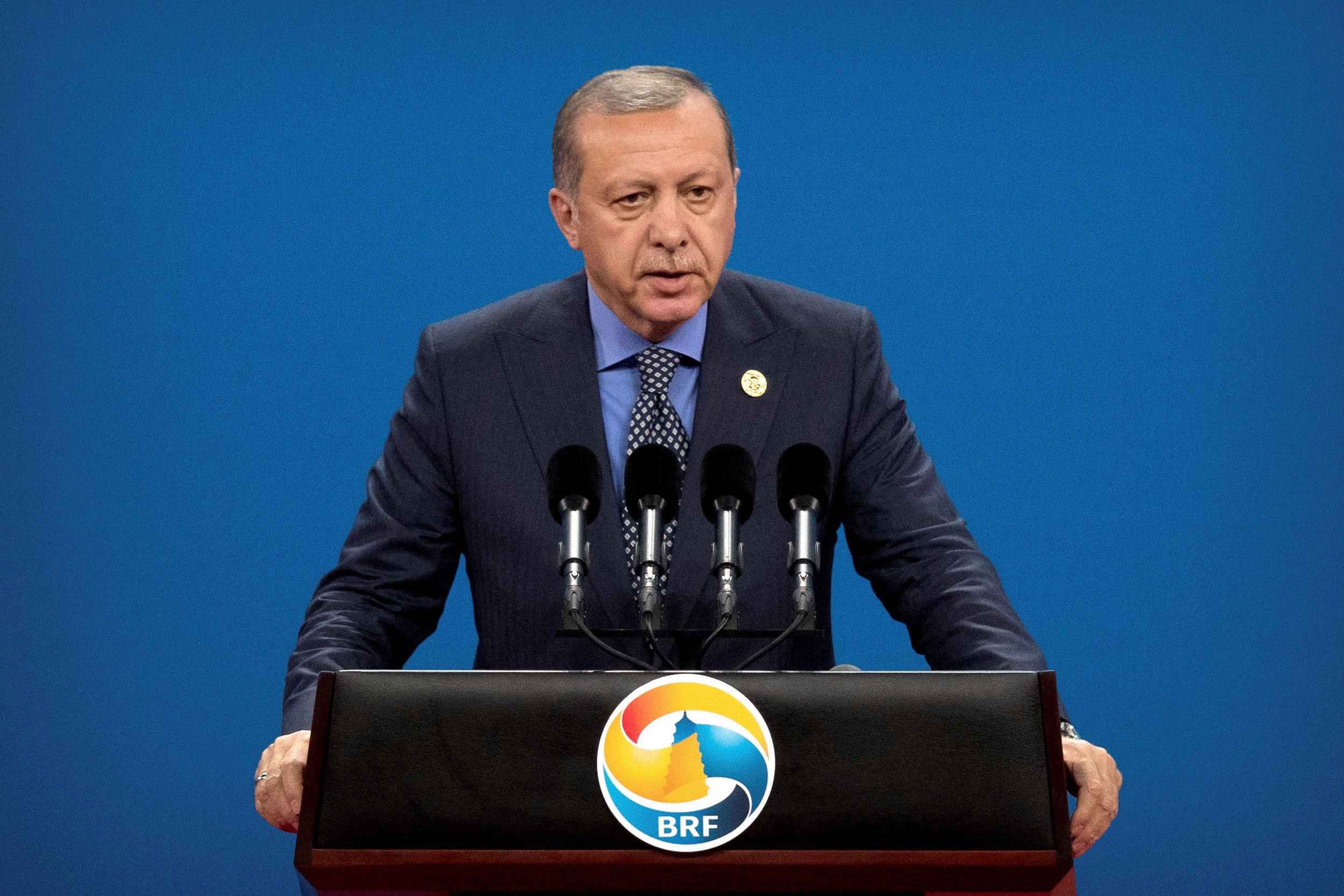
Politics
16:22, 28-Jul-2017
Turkey offers German businesses assurance amid political tensions

Turkey has tried to calm German business fears as political tensions escalate between the two countries.
Turkish Prime Minister Binali Yildirim on Thursday held a meeting with executives of leading German companies operating in Turkey, saying the country wants to prevent political tensions from damaging their business and overall economic ties.
Yildirim said Ankara does not want the crisis to escalate. He called on politicians to ensure that their disputes do not spill over and harm commerce.
Deep ties
Relations between the two countries hit a new low after authorities in Ankara implicated several German companies operating in Turkey involved in last year’s failed coup. They provided Berlin with a list of the companies allegedly involved.

Turkish Prime Minister Binali Yildirim /VCG Photo
Turkish Prime Minister Binali Yildirim /VCG Photo
Ankara later retracted the list, saying German companies were not under investigation, adding that the list was sent by mistake.
Tensions flared after Turkey arrested Peter Steudtner, a German human rights activist, earlier this month.
The arrest of 10 German citizens led to suspicions that with the ongoing crackdown, Turkey wants to pressure Germany to extradite people accused of involvement in the attempted coup.
Germany issued a sharp response to Turkey, with Foreign Minister Sigmar Gabriel berating Ankara for detaining German nationals.

German Foreign Minister Sigmar Gabriel (L) and his Turkish counterpart Mevlut Cavusoglu. /AFP Photo
German Foreign Minister Sigmar Gabriel (L) and his Turkish counterpart Mevlut Cavusoglu. /AFP Photo
He said Turkey jailed “innocent visitors to their country on outrageous charges”. Gabriel also accused the authorities in Ankara of abandoning European values and jeopardizing relations between the two countries.
After blatant and outspoken comments, he assured some three million people of Turkish descent living in Germany that “you belong here".
Germany has threatened to reduce or end credit guarantees for its companies importing from Turkey, which could result in the Turkish economy losing up to two billion US dollars annually. Tourism could also suffer as Berlin has warned its citizens against traveling to Turkey, citing “heightened danger”.
A recent poll showed Turkey has also angered German citizens, with 76 percent of respondents saying they were not satisfied with the way Chancellor Angela Merkel was handling Turkish President Recep Tayyip Erdogan.
European dream
Turkey and the EU reached a migrant deal in 2016 that aimed at stopping asylum seekers from reaching Europe. Turkey is receiving incentives to achieve this goal, however, the recent crisis has raised questions of whether Erdogan would continue to honor the deal.

Turkish President Recep Tayyip Erdogan speaks during the opening ceremony of the Belt and Road Forum at the China National Convention Center (CNCC) in Beijing, May 14, 2017. /VCG Photo
Turkish President Recep Tayyip Erdogan speaks during the opening ceremony of the Belt and Road Forum at the China National Convention Center (CNCC) in Beijing, May 14, 2017. /VCG Photo
At the opening ceremony of a memorial dedicated to the roughly 250 people who died in last year's failed coup, Erdogan accused Brussels of "messing about" with Turkey's decades-long bid to join the bloc.
At a memorial ceremony marking the first anniversary of the failed coup, Erdogan stirred a hornet’s nest saying he would bring back the death penalty if parliament passed it.
He lashed out at the European Union and said Turkey had to go its own way.
Turkey has long expressed its desire for EU membership. Critics continue to be skeptical of the Turkish dream becoming a reality.
Restoring freedoms is the first of several paths Turkey has to take in order to win confidence throughout the European Union.
(With inputs from agencies)

SITEMAP
Copyright © 2018 CGTN. Beijing ICP prepared NO.16065310-3
Copyright © 2018 CGTN. Beijing ICP prepared NO.16065310-3